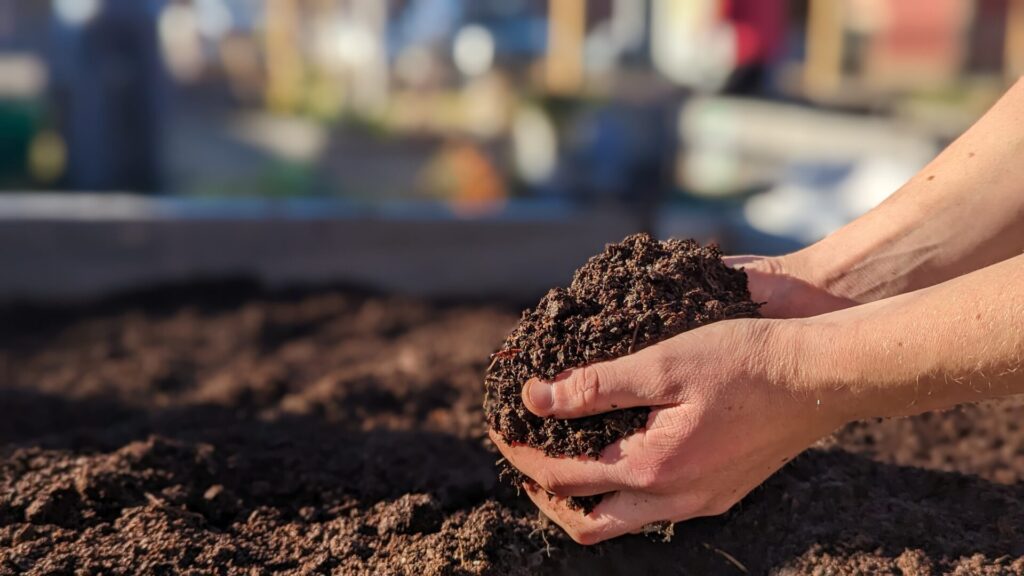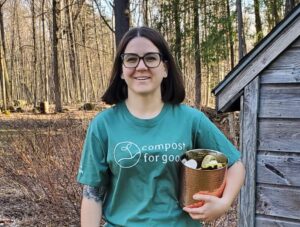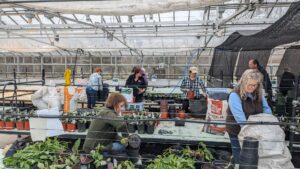By Katie Culpepper and John Culpepper, Compost for Good Team
It’s that time of year again. Apple trees are blossoming and a crescendo of birdsong greets the sun each morning. For many of us, this is the sign that it’s time to get our hands dirty—to rake up last season’s debris, to dig out weeds that have already taken hold, and to prepare our growing spaces for the first seeds and seedlings of spring.
This bed prep often includes adding a layer of compost to the garden. Many of us look at compost through the lens of the nutrients that compost contains and its ability to add organic matter to soil. While that’s important, that is only part of the story unfolding under the surface. The real magic of compost comes from the life it contains. When compost is made well it is teeming with a wide variety and large numbers of beneficial microorganisms, like bacteria, fungi, protozoa, and micro-arthropods.
When we add biologically robust compost to our soil, we are essentially inoculating our gardens with these interconnected, diverse, and beneficial microbes. This in turn brings a whole host of benefits to our growing spaces. With increased life beneath our feet, comes an increase in the soil’s ability to hold nutrients and water, while also improving percolation rates when soils are inundated with water during rain events. In other words, increased soil life makes soils more resilient against both drought and flooding.
Research shows that healthier soils bring healthier plants, which lead to increased resistance to pests and disease. Additionally, when fully established and maintained, these microbes break down organic matter and soil mineral particles into plant-available nutrients. The last point is particularly important: while soils contain all the nutrients needed to grow all kinds of plants, those nutrients are not always in an available form. With the right microbiology in the soil, the various nutrients are more readily available when plants need them, reducing or eliminating the need to add fertilizer.
Whether you are planting annual flowers, woody perennials, new grass, or you are simply sprucing up existing landscape plants and lawns, consider spreading a thin layer of biologically robust compost.
If you’re not sure if your compost is high quality, your best bet is to source compost from several different places, increasing the likelihood of adding a good mix of bacteria, fungi, protozoa, and micro-arthropods to your soil. If you have access to a forest, preferably one dominated with deciduous trees, you can also consider mixing in some soil from the forest floor. Decomposing leaf litter, decaying stumps, and all of the diverse life within a forest that eventually dies, builds a layer of soil rich in beneficial bacteria, fungi, and other microorganisms that our garden soils can lack.
To get a head start on next year’s garden beds, consider starting (or improving) a composting system at your house or in your community. The best way to ensure that you are using high quality, biologically robust compost is to make it yourself! It’s not difficult if you have the space and the interest. In a future blog, we’ll share our best tips and techniques for making great compost.
Happy planting!





